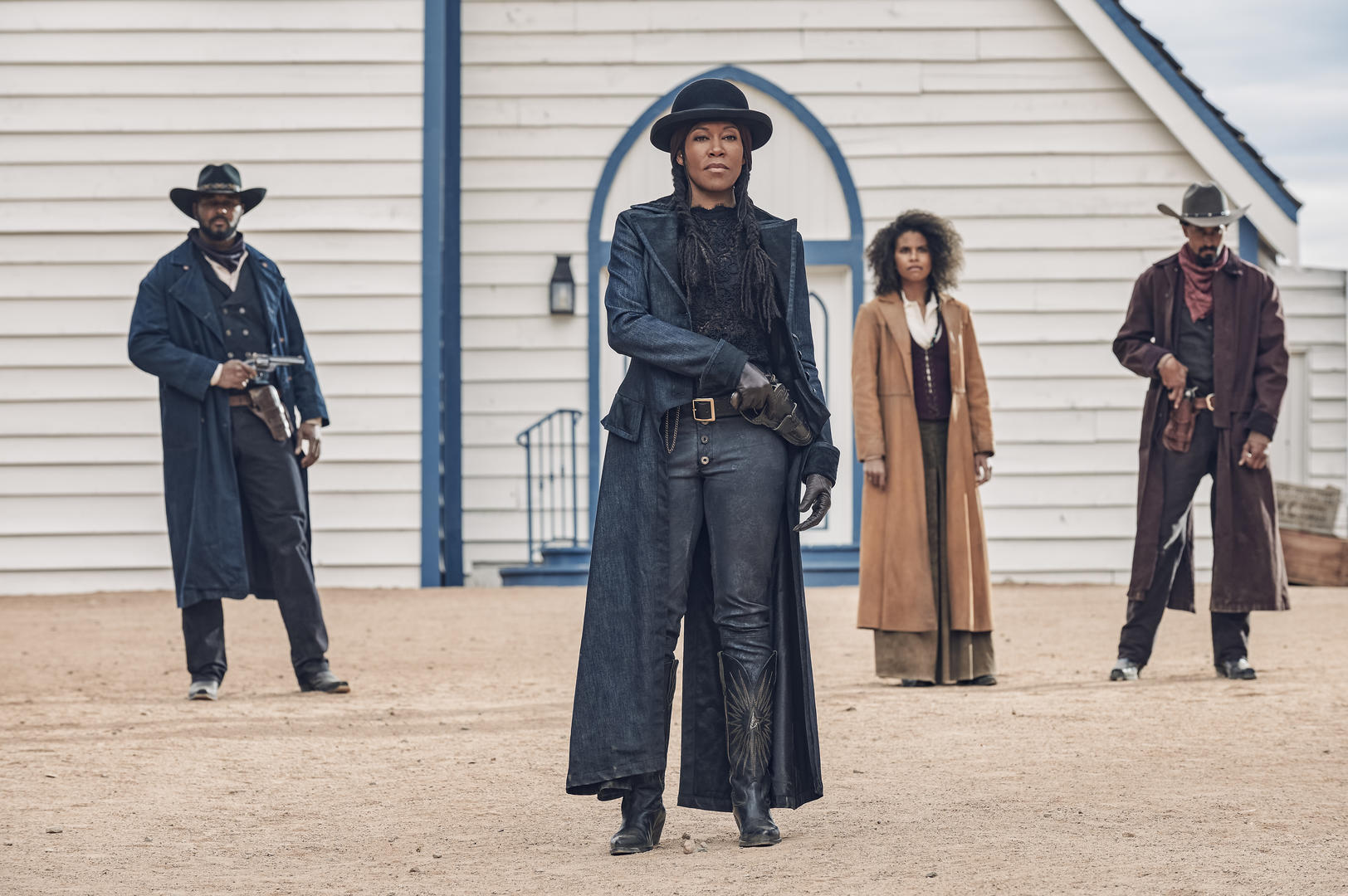I was in New Orleans for the weekend and happened to be at Canal Place, a shopping plaza near the riverwalk. I’ve been to New Orleans a couple of times and was surprised there was a movie theatre in the mall — perhaps I neglected to see it on my previous trips. Anyway, I noticed on the marquee that THE HARDER THEY FALL was playing in 35 minutes and made my way to the ticket counter to purchase my tickets.
The staff at the counter did not greet me. A guy and a girl each stared at me in absolute silence. Then the girl broke the silence by saying “either one of us.” To which I said, “huh?” We awkwardly got past the poor customer service and I bought my ticket.
I’ve been waiting on this film and was pleasantly surprised to finally be able to see it and in a theater at that. I got my snacks, made my way to the socially distanced theater, took my comfy seat, and prepared for the thrill of a lifetime and I was not disappointed.
With a long list of westerns available for those who love the genre, this one stands out as it’s an all-black cast (a first, I believe) and visually stunning. From the opening credits, you knew this was going to be an experience and not just a visual display.
Synopsis: When outlaw Nat Love (Jonathan Majors) discovers that his enemy Rufus Buck (Idris Elba) is being released from prison he rounds up his gang to track Rufus down and seek revenge. Those riding with him in this assured, righteously new school Western include his former love Stagecoach Mary (Zazie Beetz), his right and left-hand men–hot-tempered Bill Pickett (Edi Gathegi) and fast drawing Jim Beckwourth (R.J. Cyler)–and a surprising adversary-turned-ally. Rufus Buck has his own fearsome crew, including “Treacherous” Trudy Smith (Regina King) and Cherokee Bill (LaKeith Stanfield), and they are not a group that knows how to lose.
Issues including racism, genocide, and age-old arrogance exist in this film’s very escapist universe and mildly impact the lives of its real life figures, with one such Black character revealing a scar indicative of surviving a lynching. These issues, however, do not prevent its characters from owning establishments, adult brothels, and financial institutions, running sprawling, benevolent towns, and roaming about the frontier with bravado and confidence in heavily armed militia reminiscent of their white counterparts without fear of pending persecution or annihilation.
Samuels does a good job at suspending belief for the entire runtime to weave a fictional narrative using real figures that informs and adds pleasure to the knowledge received.
With all of this exposition and wonder, the film is slightly embroiled in controversy with black historians for it’s choice of actor to portray Stagecoach Mary.
@sonofbaldwinfb writes: “…casting Stagecoach Mary, a dark-skinned fat Black woman, with a thin light-skinned biracial woman was an act of psychological violence because of the ways in which the society does this to dark-skinned Black women REPEATEDLY. In a climate where we’ve had these conversations over and over and over again ad nauseam, folks should be educated on this by now. I have to believe, at this point, that doing this is colorism in effect; that it’s wholly intentional and is an intentionally hurtful and harmful message being directed at dark-skinned Black women.”
Zazie Beetz’ version of Stagecoach Mary was definitely sexualized and diminished drastically. @melodyMcooper writes: “Skin color aside, she worked building houses and delivering mail and fighting off wolves. NOT wearing red corsets and singing in a saloon.”
I’m certain the point was not to be historically accurate as the events of this movie are fictional HOWEVER, some relevance in this particular case would have been well received. You can say from the pictures everybody was a bit off from the actual figure. What now?
That issue aside, would a better option have been to not make the film until you could get the more suitable talent to portray the role? We don’t know who auditioned or who was available at the time of casting — so I won’t cast any doubt but I can see how this move could really take someone out of the experience for most of the runtime.
“How long you been in this country? A rock and a hard place is what we call Monday.”
Trudy Smith
Another vital player in this exceptional film is the soundtrack. From the opening credits to the closing crawl—the music is legendary. The action sequences are even more pointed by the music and lyrics punctuating every punch, kick, shot, explosion, and glare.
@toluspinnn writes: “Whoever selected those songs they played in The Harder They Fall deserve a special pay, that’s the best thing about the movie A fine fine movie, the Bullitts towed the Tarantino gore and dialogue focused western line while being creative enough to give the movie its own identity.”
@netflix writes: “A nice little Easter egg from The Harder They Fall: The train is named C. A. Boseman, in tribute to the brilliant and beloved Chadwick Boseman.”
Simply put — this film has a star-studded cast, is beautifully written, and the cinematography is mesmerizing — just a beautiful, black western — for the culture.
On Netflix today.

